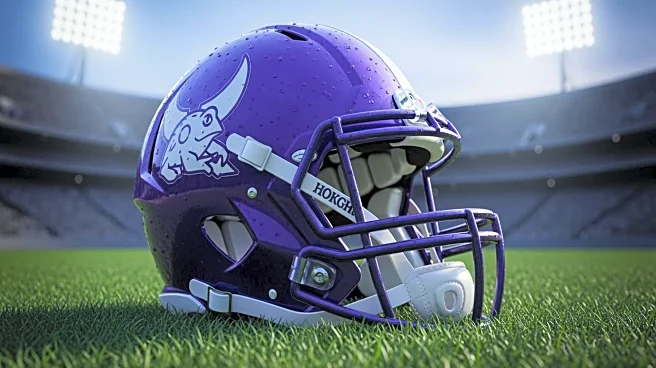What is the story about?
What's Happening?
The NCAA has levied significant penalties against the University of Michigan's football program due to a sign-stealing scandal that has persisted for nearly two years. The sanctions include a fine exceeding $20 million and a three-game suspension for coach Sherrone Moore. The NCAA's investigation revealed an elaborate scheme involving impermissible scouting and sign-stealing under former head coach Jim Harbaugh's oversight during the 2021, 2022, and 2023 seasons. Despite overwhelming evidence, the NCAA opted not to impose a multiyear postseason ban, citing the unfair impact on current student-athletes. The financial penalties include fines on the program's budget and scholarships, along with restrictions on recruiting activities. Michigan plans to appeal the decision, arguing errors in the NCAA's interpretation of bylaws.
Why It's Important?
The NCAA's decision to penalize Michigan highlights the ongoing challenges in maintaining integrity within college sports. The scandal underscores the potential for competitive advantage through unethical practices, raising concerns about the oversight and compliance within athletic programs. The financial penalties and recruiting restrictions could impact Michigan's ability to attract top talent, potentially affecting its performance in future seasons. The case also serves as a warning to other programs about the consequences of violating NCAA rules, emphasizing the importance of compliance and ethical conduct in collegiate athletics.
What's Next?
Michigan has announced its intention to appeal the NCAA's decision, challenging the interpretation of bylaws and the conclusions drawn from the evidence. The appeal process may lead to a reassessment of the penalties, potentially altering the financial and recruiting restrictions imposed on the program. Meanwhile, the program must navigate the upcoming season under the shadow of the scandal, with coach Sherrone Moore facing additional suspension in 2026. The broader implications for college football could include increased scrutiny and enforcement of compliance measures across other programs.
Beyond the Headlines
The scandal raises ethical questions about the culture within college sports programs and the pressures to gain competitive advantages. It also highlights the role of technology and surveillance in modern sports, as the sign-stealing scheme involved detailed scouting and electronic recording. The case may prompt discussions about the balance between competitive strategies and ethical boundaries, influencing future NCAA regulations and the governance of collegiate athletics.















